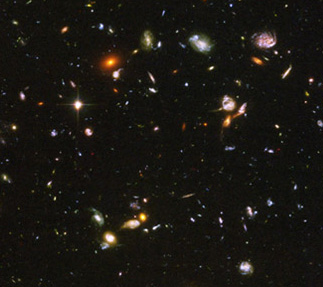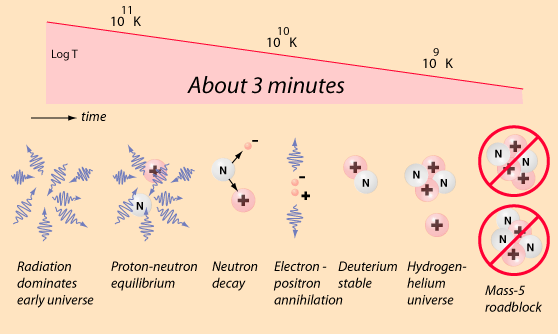Why is the universe so vast?
"If God created the universe as a special place for humanity, he seems to have wasted an awfully large amount of space where humanity will never make an appearance." Victor Stenger in "God: The Failed Hypothesis: How Science Shows that God Does Not Exist"
|

|
The universe is observed to be essentially "flat" in the sense that it is almost at the critical density at which it would expand forever. At that critical expansion rate it could form helium, whereas with a much faster rate only hydrogen would form. That rate also makes galaxies and stars possible, so that the heavier elements we are made from could be "cooked" in the nuclear fusion furnaces at the center of stars.
| Critical density and expansion rate |
| Outline |
References
